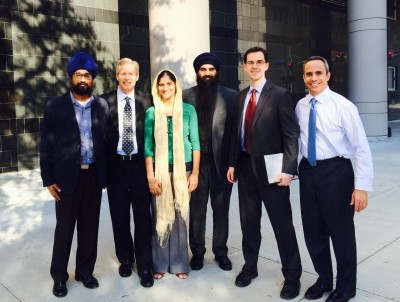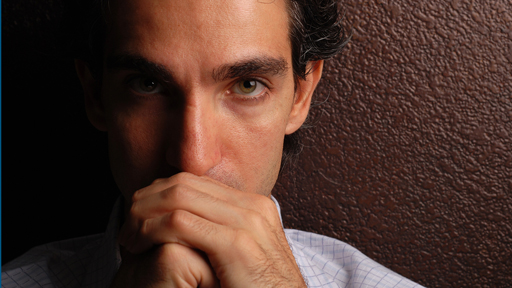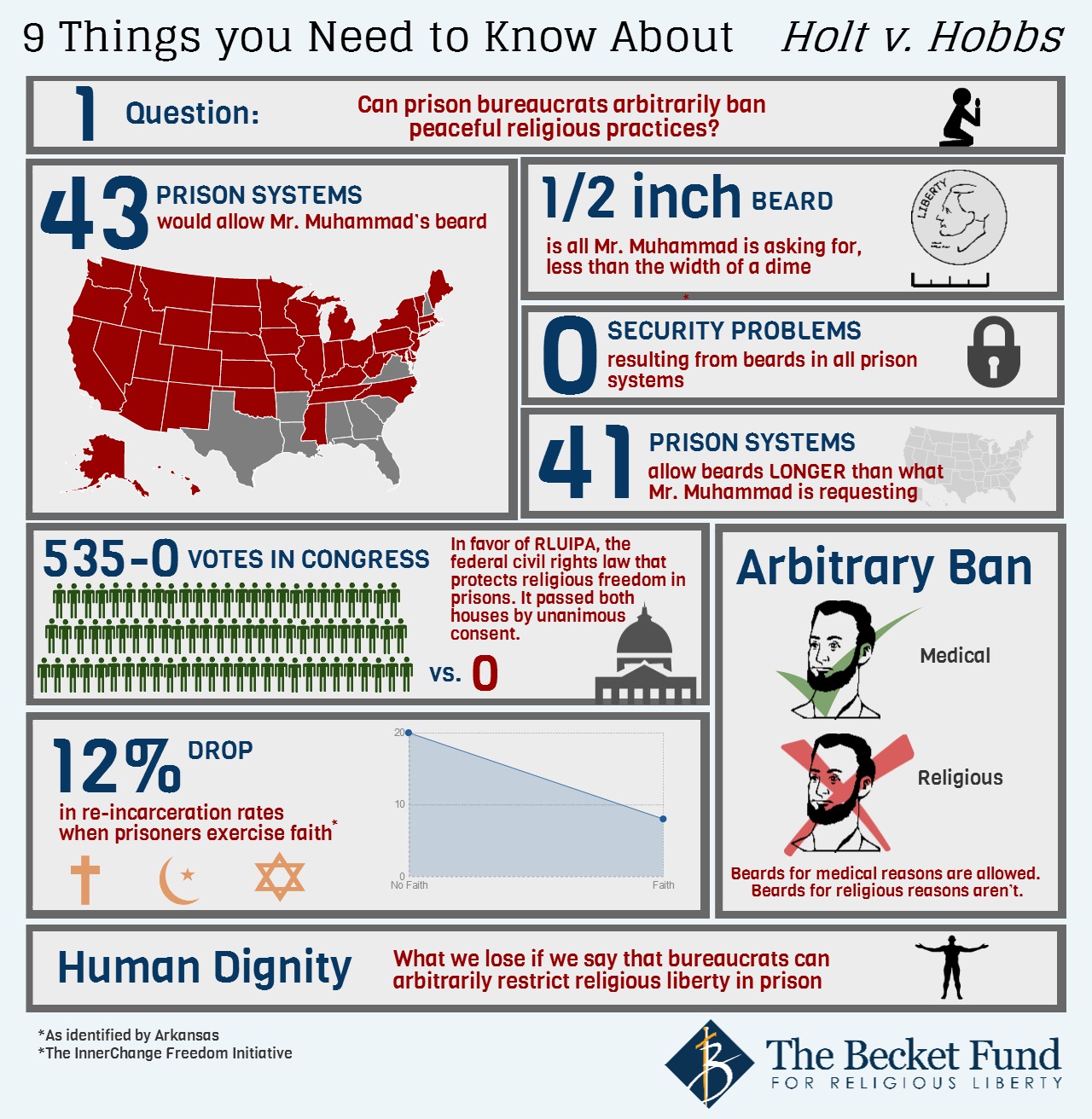
The federal government passed the Religious Freedom Restoration Act in 1993. It was authored by Chuck Schumer, passed with nearly unanimous support from both parties, and signed by President Bill Clinton. The legislation was needed after a bad Supreme Court ruling delivered by Antonin Scalia that limited religious freedom for Native Americans who smoke peyote as part of their religion. A later Supreme Court ruling ruled that the RFRA didn’t apply to state or local governments. Twenty states passed RFRAs and another 13 have protections like the ones in RFRA.
And yet when Indiana passed the legislation last week, the media characterized it as nothing more than a bigoted anti-gay bill and celebrities and activists called for a boycott against the state. The media is highly uninformed about the topic and despite RFRAs being around since 1993, no one can provide any evidence to substantiate the outlandish claims made against them. In fact, RFRA simply allows religious people to challenge government activities that encroach on their beliefs. They have to show that the government action substantially burdens a religious belief that they sincerely hold. And if they prove all that, it falls to the government to show that the challenged action is justified as the least restrictive means of furthering a compelling governmental interest. Having a RFRA doesn’t mean that you know which side wins, it just sets the terms of the debate.
If it’s not some new-fangled invention designed to hurt gay people, what is it about? No better way to learn than by looking at some recent RFRA cases at the state and federal level.
If you oppose Religious Freedom Restoration Acts, these are the real people you are hurting.
1) Most recent RFRA winner: Lipan Apache religious leader Robert Soto
Just a few weeks ago, on March 10, the federal government returned the eagle feathers it had seized nine years prior from a Native American religious leader and famed feather dancer Robert Soto. He had appealed the seizure of the eagle feathers, for which he faced 15 years in a federal penitentiary and a $250,000 fine, on Religious Freedom Restoration Act grounds.
The feds had sent undercover agents to a powwow in 2006 to confiscate the feathers, which are central to Soto’s Native American faith. The federal government prohibits possession of eagle feathers without a permit and only grants permits to museums, scientists, zoos, farmers, large power companies and federally recognized tribes. Even though the Lipan Apaches are recognized by the State of Texas, historians and sociologists, they’re not recognized by the feds.
Here’s a video featuring Soto.
2) An arbitrary ban: Sikh federal employee Kawal Tagore
 After being baptized in the Sikh faith, Kawal Tagore began carrying a kirpan, “an emblem resembling a small knife with a blunt, curved blade” that reminds Sikhs of their commitment to justice. It’s one of five articles of faith baptized Sikhs are supposed to carry.
After being baptized in the Sikh faith, Kawal Tagore began carrying a kirpan, “an emblem resembling a small knife with a blunt, curved blade” that reminds Sikhs of their commitment to justice. It’s one of five articles of faith baptized Sikhs are supposed to carry.
She was told to go home from her job with the IRS in a federal building in Houston and told not to return. The building allowed scissors, knives, box cutters and other items with far sharper blades than her kirpan, but they wouldn’t let her carry her religiously required emblem. After working from home for nine months, she was fired.
She sought protection under the Religious Freedom Restoration Act and on November 4, 2014, the government agreed to settle the case.
3) They tried to use a state RFRA and lost: 40 Chicago urban churches
Despite the grossly misinformed claims of the media, a Religious Freedom Restoration Act in no way guarantees who will win a dispute with the government. It just requires the government to meet a certain standard before violating religious liberty.
An interfaith group of 40 churches in Chicago tried to fight a Chicago zoning law that only allows churches in business and commercial areas if they are granted a special permit. Said permit process is arbitrarily required, costly, complicated and controlled by politics. So the Civil Liberties for Urban Believers (C.L.U.B.) sued Chicago under Illinois’ RFRA statute, among other things, because of the substantial burden on churches trying to occupy city property.
The 7th U.S. Circuit Court of Appeals found that no “substantial burden” had been placed on churches and that “appellants fail to make a sufficient showing on essential elements” of their religious liberty claims.
Despite the outlandish claims about religious liberty statutes, RFRA doesn’t guarantee a win, just a means to push back against the government.
4) A necessary goat sacrifice: José Merced, Santeria priest
Most dominant religions in the United States think it’s all right to kill and eat goats but that you can’t do it in a residential neighborhood. But not all religions share that view.
José Merced moved to Euless, Texas, in 1990. A Santeria Oba Oriate, or priest, Merced had performed certain animal sacrifices essential to Santeria for 16 years. But in 2006, Euless said he had to stop. He sued the city on the grounds it had violated Texas’ Religious Freedom Restoration Act.
Modern-day Santeria originated in Cuba and is a syncretism of Western African tribal religion and Roman Catholicism. It engages spirits called orishas through the use of life force that it gets, at times, via sacrificed animals. Its practitioners worship in the home — there are only a couple Santeria temples in the world and none of them are in the United States — and on special occasions such as ordination the worship calls for sacrifice of four-legged animals in addition to other animals.
This practice is in conflict with all sorts of generally accepted codes in Texas. Merced won his case in 2009.
5) When the ACLU supported state RFRAs: Adriel Arocha, long-haired Native American kindergartener
In order to enter kindergarten in the Needville, Texas, schools, Adriel Arocha, the son of Kenney Arocha and Michelle Bettenbaugh, was told he’d have to cut his hair. I couldn’t find any photos to embed here but photos of the cutie pie are here and here. The school had general grooming policies, including that “[b]oys’ hair shall not cover any part of the ear or touch the top of the standard collar in back.” The policy’s stated design is “to teach hygiene, instill discipline, prevent disruption, avoid safety hazards, and assert authority.” The parents applied for an exemption but because their religious practices were handed down orally, they couldn’t provide the necessary written documentation of their religious practice.
The boy and his parents won their case that the school district had violated Texas’ Religious Freedom Restoration Act.
One interesting thing to note about this case is that it occurred back when the ACLU vocally supported RFRAs. Here, in fact, is a picture of the Arocha-Bettenbaugh family receiving an award from the ACLU for fighting for their religious liberty under Texas’ RFRA. A few days ago, however, the ACLU sent out a blistering press release about how awful RFRAs are.
6) A halfway house takes on a city ordinance: Richard Barr and Philemon Homes
 Philemon Homes is a Christian non-profit in Sinton, Texas. It provides housing and religious instruction to petty offenders released from state prisons. Richard Barr ran the non-profit, which was located across the street from Grace Christian Fellowship, the church he attended.
Philemon Homes is a Christian non-profit in Sinton, Texas. It provides housing and religious instruction to petty offenders released from state prisons. Richard Barr ran the non-profit, which was located across the street from Grace Christian Fellowship, the church he attended.
Sinton had no restrictions on such an operation when it first began but in 1999, the city council enacted an ordinance that banned the organization from existing within the city limits. According to the group that represented Barr and Philemon, “the Texas Religious Freedom Restoration Act (TRFRA), passed in 1999, which provides much needed protection for people of faith, churches, and faith-based organizations,” was an important part of that victory.
7) Muslim prisoner fights to wear short beard: Abdul Muhammad
Abdul Muhammad is a Muslim incarcerated in Arkansas. He was not allowed to grow the 1/2 inch beard his religion commands even though Arkansas permits beards for other reasons. And the same beard would have been allowed in 44 state and federal prison systems in the country. In 2011, he filed suit. He won the suit using the “RFRA for prisoners” — the Religious Land Use and Institutionalized Persons Act. That bill was also signed by Bill Clinton.
Earlier this year, Muhammad won his case unanimously at the United States Supreme Court. They held that he’d shown the restriction was a substantial burden on his religious exercise.

8) The right to drink hallucinogenic sacramental tea: União do Vegetal
O Centro Espírita Beneficente União do Vegetal (UDV) is a Christian Spiritist sect with origins in the Amazon Rainforest, which had at the time of its case about 130 members in the United States.
The group receives a sacrament by drinking ayahuasca, a hallucinogenic tea banned by the federal government. The government seized 30 gallons of the tea when it was shipped to a Santa Fe congregation. The group sued to block this enforcement on the grounds it violated their rights under the Religious Freedom Restoration Act. Remember, the government isn’t to substantially burden a person’s exercise of religion unless it can demonstrate applying the burden represents the least restrictive means of advancing a compelling interest.
One thing that’s interesting about this case is that everyone agreed that the ban was a substantial burden on the congregation. But that didn’t mean that the congregation necessarily won their case. As Eugene Volokh explains, “finding of substantial burden on sincere religious beliefs simply shifts the burden to the government: The government may still justify the burden by showing that applying the law to the objectors is the least restrictive means of serving a compelling government interest.” The feds argued it had to uniformly apply this law with no accommodations for the Brazilian church to advance its drug prohibition interest but the Supreme Court disagreed. União do Vegetal won.
This case provides an excellent demonstration of the need for state RFRAs. Though UDV won an exemption from federal law to use their hallucinogenic tea, it doesn’t mean that they are exempt from state law. And all states other than New Hampshire and Vermont base their drug laws on the Uniform Controlled Substances Act, which prohibits the hallucinogenic tea. No state makes an exception for religious use. This means that the UDV church is unable to practice its religion and is under constant threat of criminal and civil penalties.
Religious observers such as this church have to win exemptions from all the governments that oversee them — federal, state and local. The federal RFRA is wonderful legislation but it’s in no way sufficient to protect people’s religious freedom. States also must have similar legislation.
9) Florida denies prisoners kosher meals: Bruce Rich
Bruce Rich is an Orthodox Jewish prisoner in Florida, one of the last remaining states in the country that doesn’t provide kosher food for Jewish prisoners. He argued this violates the Religious Land Use and Institutionalized Persons Act of 2000, RFRA for prisoners.
Florida claimed it limited food options to control costs and maintain security. The Becket Fund for Religious Liberty, which took Rich’s case, noted that 35 states and the federal government provided kosher meals without it posing a problem. From Becket:
On May 14, 2013 the United States Court of Appeals for the Eleventh Circuit ruled unanimously in Mr. Rich’s favor, finding that “the evidence submitted by [Florida] on summary judgment in support of its position is insubstantial.” The Court said that Florida made only “meager efforts to explain why Florida’s prisons are so different from the penal institutions that now provide kosher meals such that the plans adopted by those other institutions would not work in Florida.” It then sent the case back to the district court for further proceedings.
Rich withdrew his case once Florida began providing the necessary meals. However, the United States itself has been pursuing action against Florida, which remains the biggest holdout in the country for denying kosher food to Jewish inmates.
10) The Church of Weed? Not so fast: The Quaintances
Danuel & Mary Quaintance were arrested for running large quantities of marijuana. They argued that they are members of the Church of Cognizance, which Mr. Quaintance founded in 1991. According to the ruling handing down the rejection of their claim, “The church is organized around the teaching that marijuana is a deity and sacrament. The Quaintances claimed that they sincerely hold this belief and that possession (and consumption) of marijuana is essential to their religious exercise. Accordingly, they argued the prosecution against them unduly burdened their religious beliefs and thus could not stand under RFRA.”
The 10th Circuit didn’t buy their story. One of the requirements of RFRA is that targets of government action demonstrate that they have sincere religious beliefs. The court noted that one of their dealers had been hastily inducted into the church the night before he was to pick up his first load of ganja for them. They gave him a certificate designating him an authorized church courier but never had him read the pledge of membership or even asked him if he shared their beliefs. For his part, the courier didn’t share their beliefs and testified that he’d signed up just so he could “do the load” of marijuana he’d been asked to transport.
It is a religious issue
Apple CEO Tim Cook has come out against RFRAs in the Washington Post. “This isn’t a political issue. It isn’t a religious issue. This is about how we treat each other as human beings,” he says. Tell that to the religious minorities listed above who won their state RFRA cases.
Does Apple CEO Tim Cook really think that the kindergartener punished by his elementary school for his religious practice shouldn’t have any recourse at all? Is he not a human being who deserves good treatment? Does he think Orthodox Jews in Dallas shouldn’t have the right to worship in their synagogue? Do they really not have a religious issue?
It’s somewhat disconcerting when one of the wealthiest and most powerful men on the planet tells a group of religious minorities that he doesn’t think they have legitimate religious issues and that they shouldn’t have won their cases.
Cook writes that “Opposing discrimination takes courage.” He’s right. When powerful elites take aim at religious freedom, it takes a heck of a lot of courage to fight against anti-religious discrimination. That, of course, is precisely what RFRAs are designed to do.









